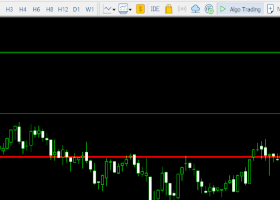
EUR, JPY, GBP, CHF, CAD, AUD, NZD: Weekly Outlook - Morgan Stanley
EUR: The Next JPY. Neutral.
Following the UK's vote to leave, the fall in EUR was relatively muted, supporting our view that EUR could stay strong under almost all scenarios.
Copy signals, Trade and Earn $ on Forex4you - https://www.share4you.com/en/?affid=0fd9105
With German bond yields falling into negative territory, the room for nominal yields to move lower is limited. The risk of a sudden decline in inflation expectations outpacing the fall in nominal yields has risen, which should push real yields up in support of EUR. As domestic EMU banks reduce long-term foreign asset purchases to consolidate their balance sheets, the commercial buying needs from the EMU's current account surplus will likely outweigh long-term capital outflows, preventing EUR from weakening.
JPY: Staying Strong. Bullish.
The UK's vote to leave has helped USDJPY break below 100, fuelling speculation of FX intervention by the MoF. However, Japan is on the US Treasury's list of potential currency manipulators, so it is unlikely to intervene unless it gets approval from the G7. The G7 may agree only to volatility-reducing operations, so any USDJPY appreciation is likely to be temporary and USDJPY will probably continue its march lower due to real yield differentials, hedging flows and the ineffectiveness of conventional monetary and fiscal policy tools in weakening JPY.
GBP: Shorts Offer Good Risk/Reward. Bearish.
We think GBPUSD could continue its decline to 1.25 after the vote to leave. The UK needs foreign investment inflows to fund its 7% of GDP current account deficit, but the vote to leave could cause a decline in cross-border flows. For foreign investors to be attracted to the UK, either GBP has to depreciate to make UK assets cheaper, or UK assets need to offer a higher yield. Given that the UK sovereign yield curve lies below the US yield curve for all maturities beyond 1y, it seems more likely that it will be the FX depreciation doing the work. Hence, we think the risk/ reward of going short GBP against JPY, EUR and USD at current levels is attractive.
CHF: Real Yield Support. Bullish.
The UK's vote to leave the EU could give a boost to rising populism in Europe, potentially creating more political uncertainty, which would help CHF strengthen. As a large part of Switzerland's sovereign yield curve is in negative territory, the room for nominal yields to fall further is limited. In a deflationary, slow growth environment, inflation expectations are likely to fall faster than nominal yields, driving real yields higher, supporting the currency. Any rapid appreciation of CHF will probably be met with intervention from the SNB, but a slow grind higher should be acceptable.
CAD: Fundamentally Bearish. Bearish.
The inverse correlation between oil and USD is expected to stay strong, keeping the oilsensitive CAD weak. We maintain our bearish view on CAD as we believe the market isn't pricing enough downside risks to the outlook, though we see scope for further strengthening if risk performs well. The BoC has maintained an upbeat tone with Poloz arguing that the economy is making "real progress" and supporting a wait-and-see approach to the recent wildfires and trade data. However, we are still skeptical of Canada's rotation away from the resource sector, with April's trade data showing little rebound after a sharp reversal of export growth in the last few months and few promising industries which can be the engines of growth in the future. This week's retail sales data point to weak 2Q consumption after it being a strong contributor to growth in 1Q and with a weaker-thanexpected 1Q GDP and the impact of the wildfires expected to show up in May's data, we think there are increasing risks of the BoC turning dovish at the July meeting. A further fall in oil prices or risk appetite support our bearish view as well.
AUD: Selling AUD Rallies. Bearish.
We remain bearish AUD and look to sell AUD rallies. The RBA easing soon is a possibility in response to Brexit, adding to the already weak inflation dynamics. Our economists were already expecting another 75bp of rate cuts, given the weak inflation outlook and risks of a 2H slowdown in China. In addition to the high market volatility risks for AUD, local house price growth is a key risk; recent acceleration has given the RBA pause, but we still believe the trend will reverse and see further macro-prudential regulation as possible if it does not.
NZD: Risk-Dependent. Neutral.
New Zealand's latest GDP print has surprised to the upside, driven by strong consumption growth, supporting our view that NZD will continue to be supported by strong migration. However, while NZD will likely be supported in the risk rally, we believe that the RBNZ will continue to face the divergent effects of rising house prices (pushing it to keep rates on hold or raise them) and a too strong exchange rate (forcing further easing). To the extent that NZD rallies too far, we like selling the currency as the central bank appears ready to act.
![[$9,496] in 5 Days Using 'Supply Demand EA ProBot' (Live Results) [$9,496] in 5 Days Using 'Supply Demand EA ProBot' (Live Results)](https://c.mql5.com/6/965/splash-preview-761070-1740062258.png)

